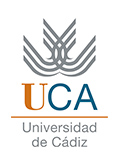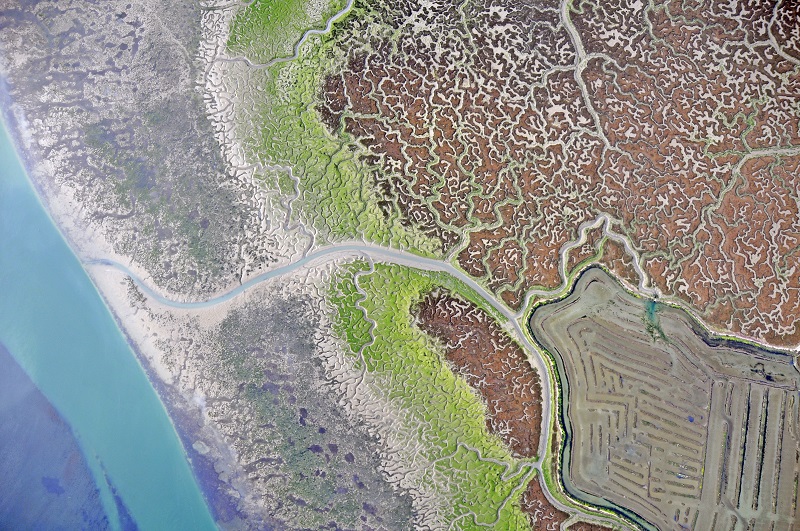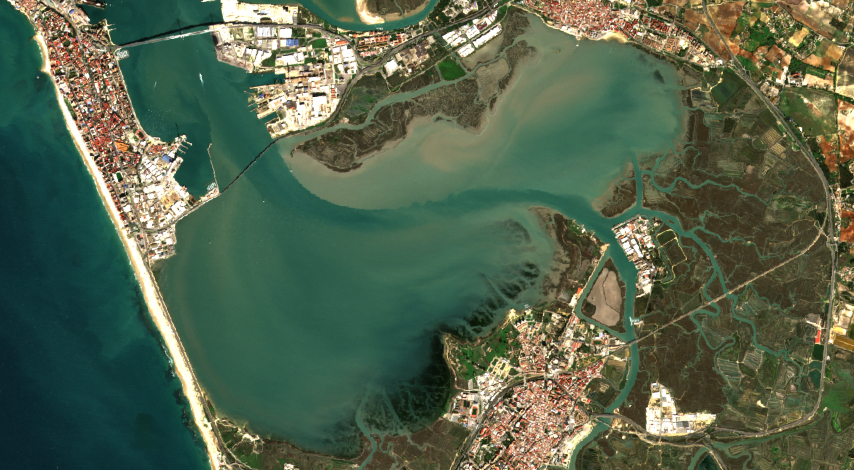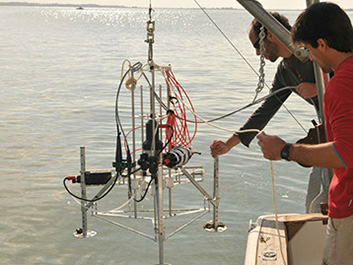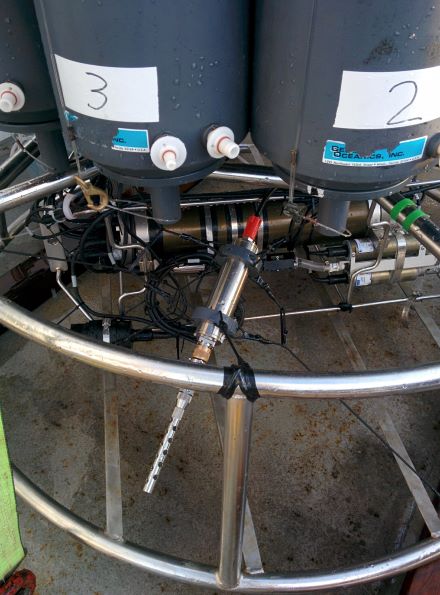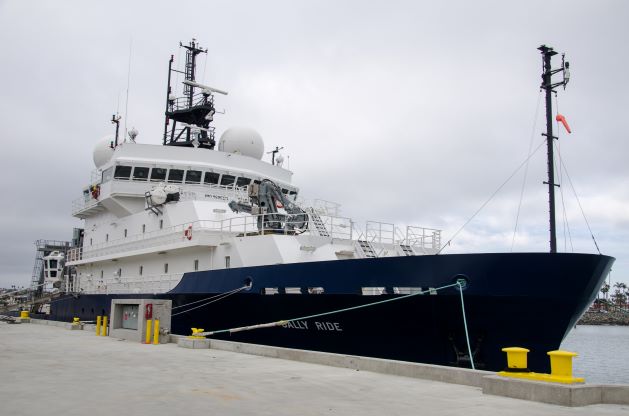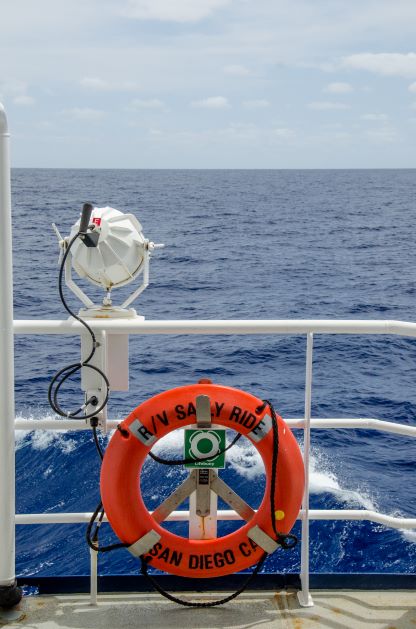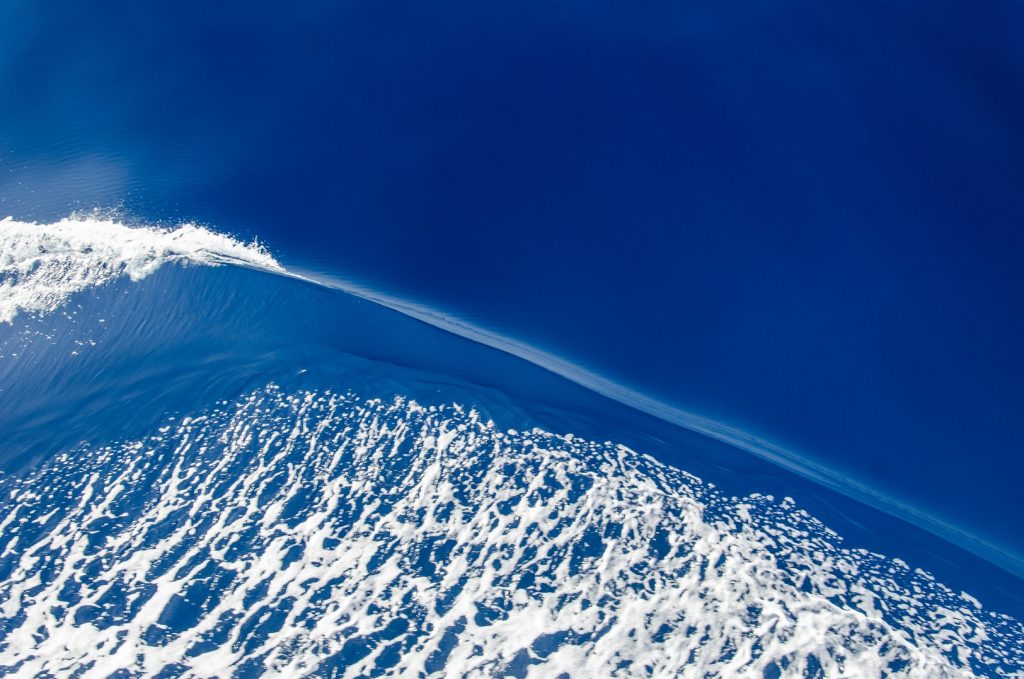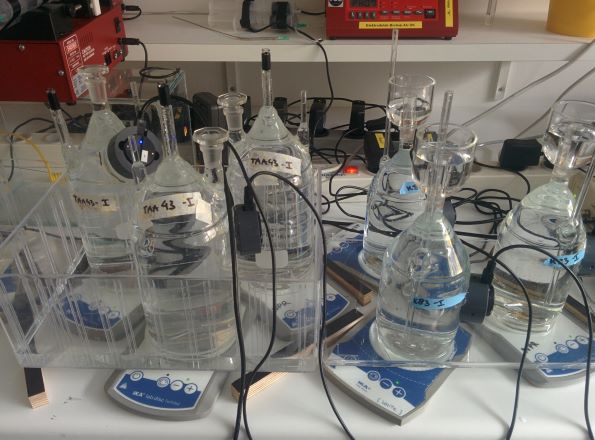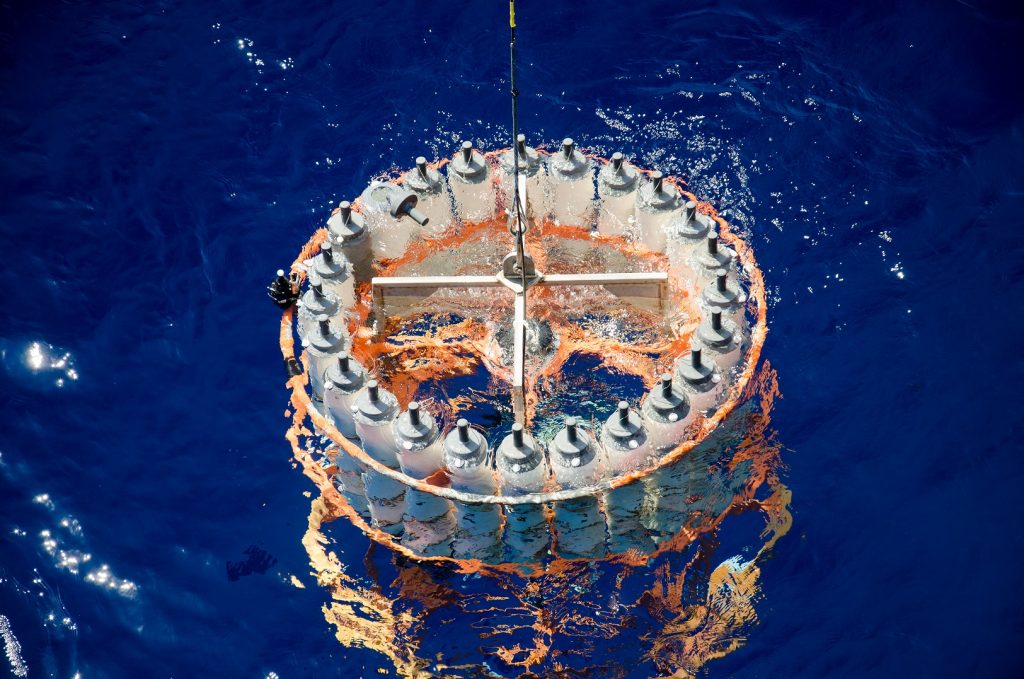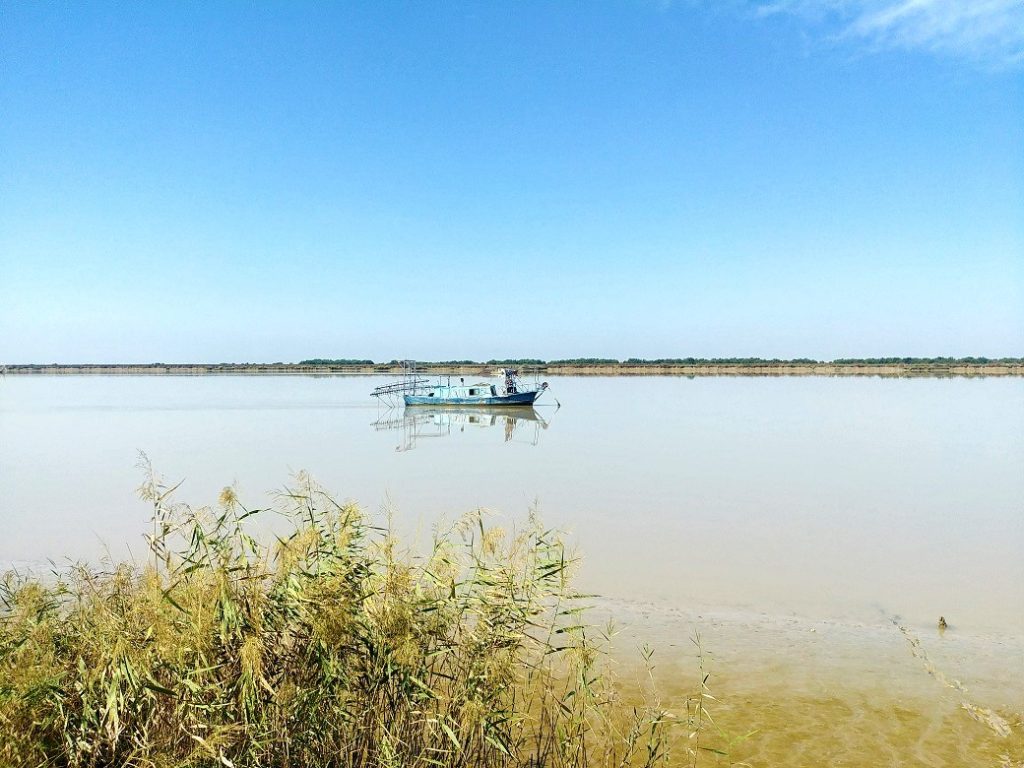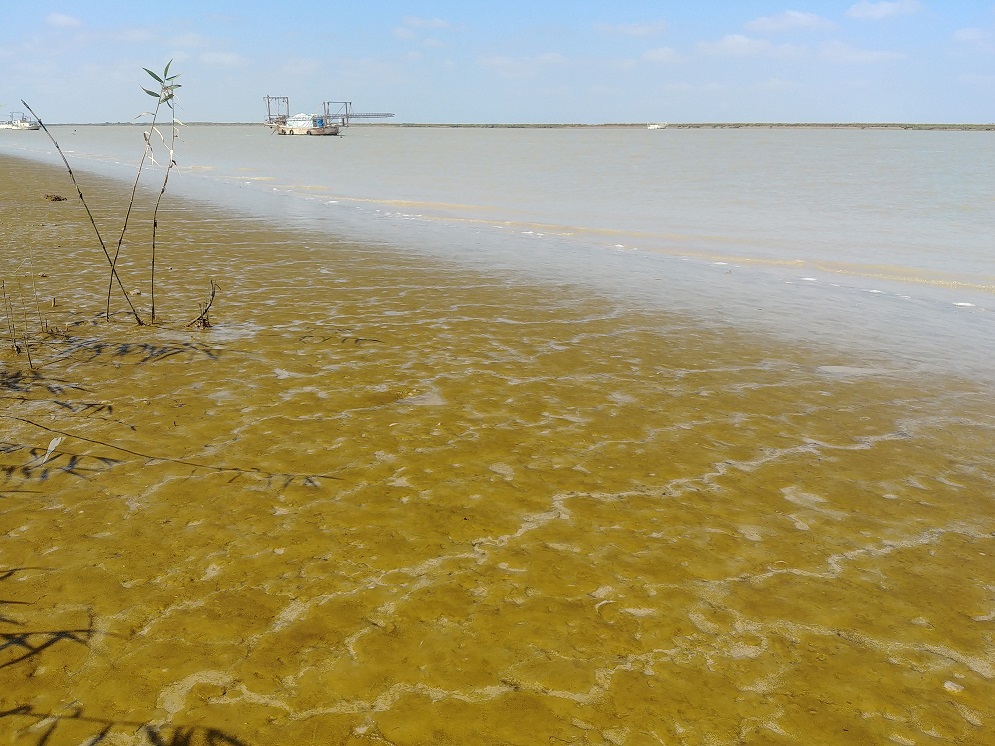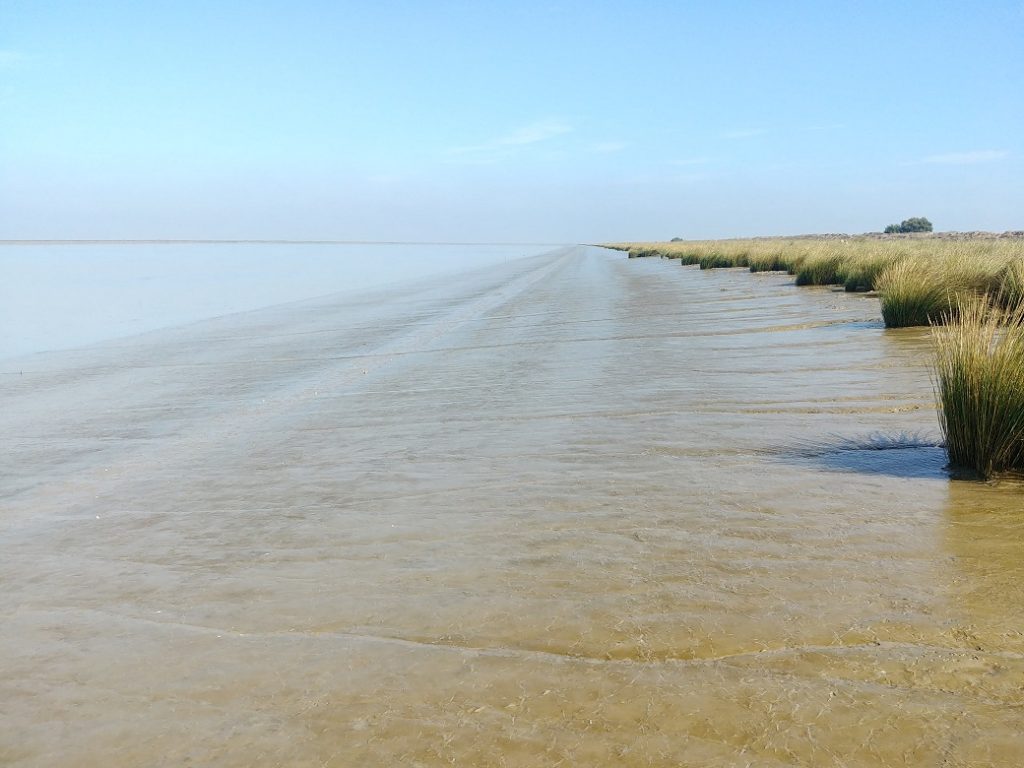Home » MEBL@UCA (Page 3)
Category Archives: MEBL@UCA
Biocobre: new project at MEBL
The research group in Microbial Ecology and Biogeochemistry of the UCA (MEB-LAB) initiates the development of a new line of research on copper precipitation in environments contaminated by acid mine drainage in the framework of the project “Bioprecipitation of metallic copper from acid mine drainage in the Iberian Pyritic Belt” BIOCOBRE, funded by the Junta de Andalucía.
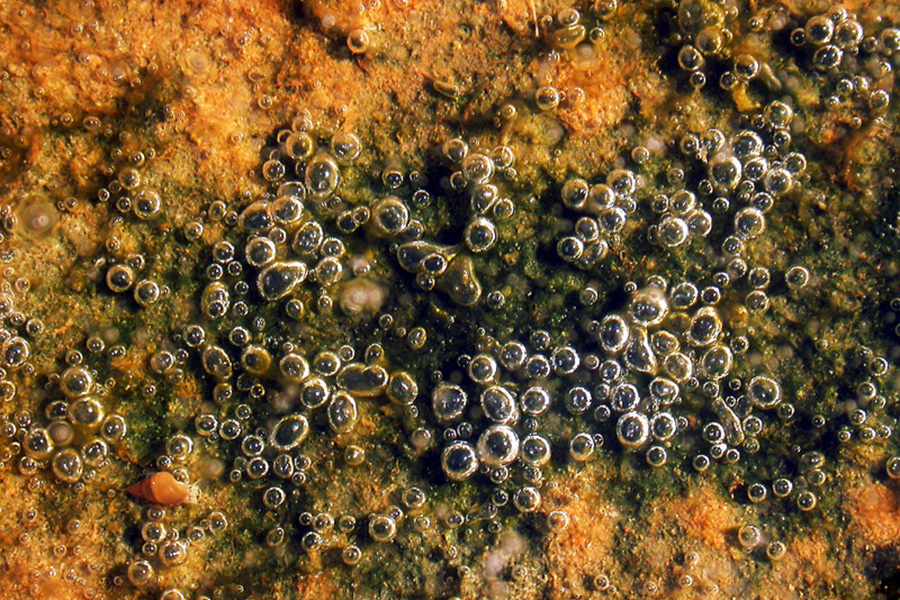
The objective of the project is to study precipitates of copper salts and oxides in environments contaminated by acid mine drainage (AMD). The biogeochemical conditions, the microbial community and the metabolic pathways involved in the precipitation of copper nanoparticles in biofilm growing in acid mine drainage (AMD) areas in the Faja Piritica Iberica (Huelva) will be investigated.
Precipitates of Cu2+ and Cu+ salts and oxides are common in acid mine drainage (AMD) contaminated environments, but Cu0 precipitates are not. BIOCOBRE will investigate the biogeochemical conditions, microbial community and metabolic pathways involved in the precipitation of metallic copper (Cu0) nanoparticles in a biofilm growing in the acid mine drainage (AMD) of the abandoned mine Mina Esperanza (Huelva). To understand the Cu0 bioprecipitation process, we will set the following objectives: 1) define the geochemical environment within the biofilm where Cu0 precipitates and accurately measure Cu0 precipitation rates under different conditions, 2) describe the evolution of the biofilm microbial community from colonization to maturity under different environmental conditions, 3) isolate and culture the biofilm microorganisms (mainly fungi and bacteria) potentially involved in the Cu0 precipitation process. To achieve these objectives, we will use a multidisciplinary approach in which we will combine state-of-the-art techniques from different scientific disciplines: microsensors (O2, H2S, pH and Eh), geochemical and mineralogical methods, scanning transmission electron microscopy (STEM), omics tools (metagenomics, metatranscriptomics, metaproteomics, metabolomics) and multispecific and axenic microbial cultures. The scientific and socioeconomic impact of BIOCOBRE, if we are able to achieve Cu0 precipitation, could be high. It could lead to patents and would probably open a new line of research focused on the bioengineering of the Cu0 precipitation process, to make it a technically and economically viable alternative to recover Cu0 from AMD, using an ecological approach at a reduced cost, in which Andalucia would be at the forefront.
The project (P20-01048) is co-financed by the European Union, within the framework of the Andalusia FEDER Operational Program “Smart growth: an economy based on knowledge and innovation, also responding to the Research and Innovation Strategy for the Smart Specialization of Andalusia (RISˑAndalusia) and the priorities and objectives set out in the Andalusian Plan for Research, Development and Innovation (PAIDI 2020).
Researchers from different departments and universities collaborate in the project:
Corzo Rodriguez, Alfonso, Dept Biología, Area de Ecología. Investigador principal, Coordinación general. Ecología microbiana
Papaspyrou, Sokratis, Dept Biología, Area de Ecología. Ecología microbiana.
García Robledo, Emilio Guillermo, Dept Biología, Area de Ecología. Ecología microbiana.
Duran Ruiz, Maria Del Carmen, Dept Biomedicina, Biotecnología y Salud Publica, Area de Bioquímica. Metaproteonómica.
Garrido Crespo, Carlos, Dept Biomedicina, Biotecnología y Salud Publica, Area de Microbiología. Aislamiento de microorganismos.
Lajaunie, Luc Cyrille Jacques, Dept de Ciencia de los Materiales e Ingeniería Metalúrgica y Química Inorgánica. Microscopia electrónica y análisis mineralógicos

Fig. 1. Exit of the AMD of Mina Esperanza (Huelva) and precipitation channel (A, E). Biofilm surface in the channel (B). O2 microsensor coupled to a micromanipulator measuring in situ (F). Portions of the biofilm with accumulations of precipitated Cu (pink color) (C). SEM images of Cu precipitation within the pink masses at different magnifications (D, G, H). Precipitated Cuº is found in close association with amorphous and filamentous structures that could represent the EPS matrix of the biofilm and bacterial structures such as nanowires (H).
Also participating in the project are:
Castillo Hernández, Julio Cesar. Univeridad de Free State, Sudafrica. Geomicrobiología, herramientas moleculares y microscopia.
Valverde Portal, Angel, IRNASA-CSIC. Microbiología.
Taylor, Joe Daniel, UK Centre for Ecology & Hydrology. Metagenómica.
The project (P20-01048) is co-financed by the European Union, within the framework of the Andalusia FEDER Operational Program “Smart growth: an economy based on knowledge and innovation, also responding to the Research and Innovation Strategy for the Smart Specialization of Andalusia (RISˑAndalusia) and the priorities and objectives set out in the Andalusian Plan for Research, Development and Innovation (PAIDI 2020).
EXTREME-FUN: PhD offer to study the effects of Extreme Climatic Events on shallow coastal areas
PID2020-112488RB-I00/ AEI / 10.13039/501100011033 «R&D Projects» 2020 – Modalities «Research Challenges» and «Knowledge Generation» // PI: Sokratis Papaspyrou /Alfonso Corzo (226.000 €)

PhD offer to study the impacts of Extreme Climatic Events, such as heat-waves and wind storms, on shallow coastal areas, focusing on the impacts on the biological community and biogeochemical functioning of shallow bays and intertidal zones.
What?
We are looking for a motivated candidate to pursue a doctoral thesis in microbial ecology and biogeochemistry of oceanic ecosystems. The project will be supported by the EXTREME-FUN project (Effects of extreme climatic events on the biogeochemical functioning of shallow coastal areas: from the micro to the macroscale), which aims to quantify in an integrated manner the effect of heat waves and windstorms, affecting temperature and sediment resuspension conditions, on the biogeochemical functioning of a shallow coastal ecosystem.
The candidate will use a combination of laboratory experiments, field measurements and aerial data (satellite, drones…) to study the spatial and temporal variability of the microphytobenthos and its contribution to the primary production of the system and evaluate the effect of changes in external forcing by temperature and resuspension/hydrodynamics under normal and extreme conditions on microphytobenthos physiology, benthic pelagic coupling and carbon flux throughout the system.
When?
The PhD will start in April-May 2022 and will last 3 years, with the possibility of a 1-year extension.
Where?
The PhD will be developed in the Microbial Ecology and Biogeochemistry Group of the Department of Biology of the University of Cadiz, under the supervision of Sokratis Papaspyrou and Alfonso Corzo.
Requirements
- The candidate must have obtained a bachelor’s degree on Marine or Environmental Sciences, Biology or similar and a Master’s degree preferably also in the same topics.
- The candidates must be pre-registered in a Doctoral Program in Marine Science and Technology at the University of Cadiz (https://posgrado.uca.es/doctor/)
- Be highly motivated and committed to develop a scientific career.
- Have some experience on biogeochemistry, aquatic ecology, microbiology, remote sensing, environmental chemistry or similar.
- Have experience on scientific reading and writing.
- Have a high level of written and spoken English.
How to apply?
The Ministry has opened the call for applications from October 28 to November 11, 2021 on the website: https://sede.micinn.gob.es/ayudaspredoctorales/
Call: Ayudas para contratos predoctorales para la formación de doctores 2021
Applications
- Send the application electronically through the following application: https://sede.micinn.gob.es/ayudaspredoctorales/
- Project Reference: PID2020-112488RB-I00, “EFECTO DE LOS EVENTOS CLIMATICOS EXTREMOS SOBRE EL FUNCIONAMIENTO BIOGEOQUIMICO DE ZONAS SOMERAS COSTERAS: DE LA MICRO A LA MACROESCALA”
- Only a single application is allowed per candidate.
- Documentation to be attached:
- documentation certifying pre-admission to the PhD Program 2022/23: application page.
- In case of doubts: contact the doctoral school
- Curriculum vitae, preferably using the template of the ministry: template
- Academic certificate issued by the University where the Bachelor’s and Master’s degrees were obtained: the grades obtained and the date of graduation must appear.
- Copy of valid passport in case of foreign citizens.
- documentation certifying pre-admission to the PhD Program 2022/23: application page.
Please send an email with your CV to sokratis.papaspyrou@uca.es before applying for the position.
Participation in the SR2114 cruise
MAMBO: PhD offer to study the microbial metabolism in Oxygen Minimum Zones and low oxygen environments
PhD offer to study the microbial metabolism in Oxygen Minimum Zones and low oxygen environments, being focused on the impact of decreasing oxygen conditions on the respiration rates of model microorganisms and microbial communities of Oxygen Minimum Zones.
What?
We are looking for a motivated candidate to pursue a doctoral thesis in microbial ecology and biogeochemistry of oceanic ecosystems. The project will be supported by the MAMBO project (MicrobiAl Metabolism in the Boundary of Oxic-anoxic conditions), which aims to study the response of marine microbial communities to decreasing oxygen levels, providing useful information to understand the impacts of the ocean deoxygenation in coastal zones impacted by hypoxic/anoxic events and in the vast Oxygen Minimum Zones.
The candidate will use a combination of laboratory experiments and field measurements during oceanographic cruises to study the kinetics of aerobic respiration and gene expression of model microbes and of microbial community from oceanic regions affected or not by low oxygen conditions.
When?
The PhD will start in April-May 2022 and will last 3 years, with the possibility of a 1-year extension.
Where?
The PhD will be developed in the Microbial Ecology and Biogeochemistry Group of the Department of Biology of the University of Cadiz, under the supervision of Emilio Garcia Robledo.
Requirements
- The candidate must have obtained a bachelor’s degree on Marine or Environmental Sciences, Biology, Biotechnology or similar and a Master’s degree preferably also in the same topics.
- The candidates must be pre-registered in a Doctoral Program in Marine Science and Technology at the University of Cadiz (https://posgrado.uca.es/doctor/)
- The candidate must not be a doctor or have had a PhD grant of more than 12 months.
- Be highly motivated and committed to develop a scientific career.
- Have some experience on aquatic ecology, microbiology, biogeochemistry, molecular biology or similar.
- Have experience on scientific reading and writing
- Have a high level of written and spoken English
How to apply?
The University of Cadiz has opened the call for applications from October 29 to November 25, 2021 on the website planpropioinvestigacion.uca.es/contratos-predoctorales-asociados-a-proyectos-y-rc-pif-2021/
Call: BOUCA341
Please send an email with your CV to emilio.garcia@uca.es before applying for the position.
Applications
- Send the application electronically through the following application: planpropioinvestigacion.uca.es/contratos-predoctorales-asociados-a-proyectos-y-rc-pif-2021/
- Project Reference: Microbial Metabolism at the Oxic-Anoxic Border – MAMBO: PID2020-117340RA-00

- Only a single application is allowed
- Documentation to be attached:
- documentation accrediting pre-admission to the PhD Program 2022/23: application page.
- In case of doubts: contact doctoral school
- Curriculum vitae according to the format included in the Annex IV of the call for applications: template
- Academic certificate issued by the University where the Bachelor’s or Master’s degree was obtained: the grades obtained and the date of obtaining must appear. In the case of certificates issued by foreign centers, the maximum and minimum grades within the corresponding evaluation system and the minimum passing grade must also be stated. If the academic certification is issued in a language other than Spanish or English, it must be accompanied by the corresponding official translation into one of these two languages.
- Responsible declaration of not being in possession of a Doctor’s degree: template
- Statement that the applicant has not previously held a pre-doctoral contract for a period of more than 12 months: template.
- Copy of valid passport in case of foreign citizens.
- documentation accrediting pre-admission to the PhD Program 2022/23: application page.
EMERGE: PhD offer to study the impacts of heatwaves on coastal ecosystems
PhD offer to study the impacts of heatwaves on coastal ecosystems, being focused on the changes in the carbon and nitrogen cycle and the associated microbial community.
What?
We are looking for a motivated candidate to pursue a doctoral thesis in microbial ecology and biogeochemistry of coastal ecosystems. The project will be supported by the EMERGE project (Impacts of heat waves in shallow coastal environments: effects on microbial communities and the release of greenhouse gases), which aims to study coastal ecosystems impacted by rising temperatures during increasingly frequent heat waves. The candidate will use a combination of laboratory experiments (micro and mesocosms) and field measurements to study the net metabolism of the benthic compartment, the production and release of greenhouse gases (methane, nitrous oxide and carbon dioxide) and the microbial community with molecular techniques.
When?
The PhD will start in April-May 2022 and will last 3 years, with the possibility of a 1-year extension.
Where?
The PhD will be carried out in the Microbial Ecology and Biogeochemistry Group of the Department of Biology of the University of Cadiz, under the supervision of Emilio Garcia Robledo.
Requirements
- The candidate must have obtained a bachelor’s degree on Marine or Environmental Sciences, Biology, Biotechnology or similar and a Master’s degree preferably also in the same topics.
- The candidates must be pre-registered in a Doctoral Program in Marine Science and Technology at the University of Cadiz (https://posgrado.uca.es/doctor/)
- The candidate must not be a doctor or have had a PhD grant of more than 12 months.
- Be highly motivated and committed to develop a scientific career.
- Have some experience on aquatic ecology, microbiology, biogeochemistry, molecular biology or similar.
- Have experience on scientific reading and writing
- Have a high level of written and spoken English
How to apply?
The University of Cadiz has opened the call for applications from October 29 to November 25, 2021 on the website planpropioinvestigacion.uca.es/contratos-predoctorales-asociados-a-proyectos-y-rc-pif-2021/
Call: BOUCA341
Please send an email with your CV to emilio.garcia@uca.es before applying for the position.
Applications
- Send the application electronically through the following application: planpropioinvestigacion.uca.es/contratos-predoctorales-asociados-a-proyectos-y-rc-pif-2021/
- Project Reference: Contrato Ramon y Cajal: RYC2019-027675. Title: “PROGRAMA DE DOCTORADO EN CIENCIAS Y TECNOLOGÍAS MARINAS”

- Only a single application is allowed
- Documentation to be attached:
- documentation accrediting pre-admission to the PhD Program 2022/23: application page.
- In case of doubts: contact doctoral school
- Curriculum vitae according to the format included in the Annex IV of the call for applications: template
- Academic certificate issued by the University where the Bachelor’s or Master’s degree was obtained: the grades obtained and the date of obtaining must appear. In the case of certificates issued by foreign centers, the maximum and minimum grades within the corresponding evaluation system and the minimum passing grade must also be stated. If the academic certification is issued in a language other than Spanish or English, it must be accompanied by the corresponding official translation into one of these two languages.
- Responsible declaration of not being in possession of a Doctor’s degree: template
- Statement that the applicant has not previously held a pre-doctoral contract for a period of more than 12 months: template.
- Copy of valid passport in case of foreign citizens.
- documentation accrediting pre-admission to the PhD Program 2022/23: application page.
BIOCOBRE project: PhD fellowship
We are looking for a candidate interested in applying for the call for pre-doctoral contracts for research personnel in training of the Junta de Andalucía, to carry out the doctoral thesis at the University of Cadiz in the framework of the project “Bioprecipitation of metallic copper from acid mine drainage in the Iberian Pyritic Belt” BIOCOBRE, funded by the Junta de Andalucía.

The aim of the project is to study precipitates of copper salts and oxides in environments contaminated by acid mine drainage (AMD). The biogeochemical conditions, the microbial community and the metabolic pathways involved in the precipitation of copper nanoparticles in biofilm growing in areas of acid mine drainage (AMD) in the Iberian Pyritic Belt (Huelva) will be investigated.
To understand the process we will 1) define the geochemical environment within the biofilm and measure copper precipitation rates under different conditions, 2) describe the evolution of the biofilm microbial community from colonisation to maturity, 3) isolate and culture the biofilm microorganisms potentially involved in the copper precipitation process. To achieve these objectives, we will use a multidisciplinary approach combining state-of-the-art techniques from different scientific disciplines: microsensors (O2, H2S, pH and Eh), geochemical and mineralogical methods, scanning transmission electron microscopy (STEM), omics tools (metagenomics, metatranscriptomics, metaproteomics, metabolomics) and multispecific and axenic microbial cultures.
Requirements
- Degree in Biological Sciences, Biotechnology or similar with at least 240 credits.
- Average grade of the academic transcript higher than 8.0 out of 10.
In addition, the candidate must be highly motivated to carry out a doctoral thesis and be willing to train as a researcher in the microbiology of systems impacted by acid mine drainage, and have basic knowledge of cultures/reactors, omics tools or biogeochemistry. Good oral and written communication skills in English would also be an asset.
If successful, the PhD student will join the Ecology Area of the Department of Biology of the University of Cadiz and specifically the Microbial Ecology and Biogeochemistry group (microbentos.uca.es).
Contact: Those interested should send their CV (with academic transcript) and motivation letter to Alfonso Corzo (alfonso.corzo@uca.es) before 24 June 2021.
The call (in Spanish) can be found here:
PhD fellowship call
We are looking for candidates interested in applying for the call for pre-doctoral contracts for research personnel in training of the Junta de Andalucía, to carry out the doctoral thesis at the University of Cadiz in one of our current and future projects
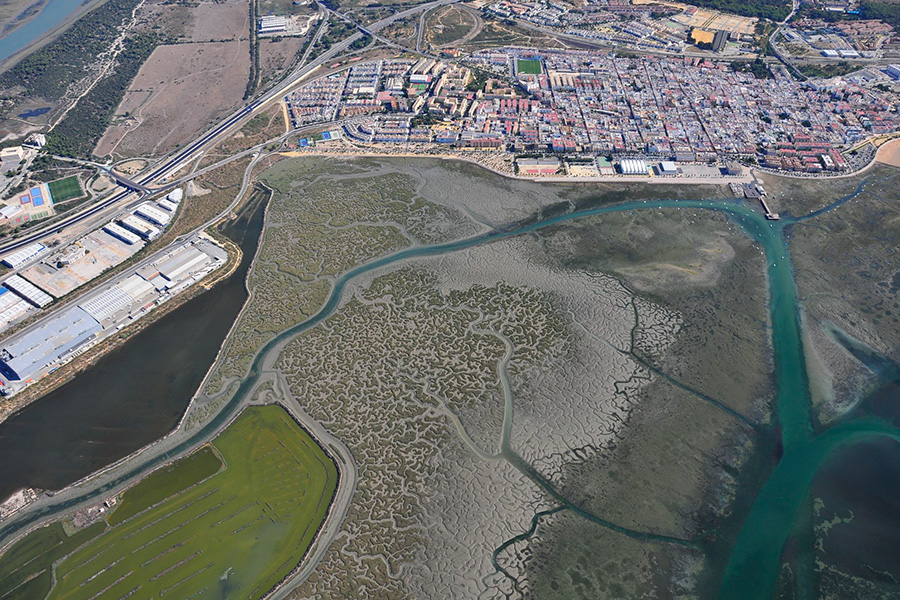
Currently we have one active project and three accepted expected to start this year.
For more information on the projects check the individual ads.
Contact: Those interested to apply for this public call should send their CV (with academic transcript) and motivation letter to Alfonso Corzo (alfonso.corzo@uca.es) before 24 June 2021.
The call (in Spanish) can be found here:
More openings in our projects are expected to be offered at a later date this year.
CEIMar Young researcher’s projects

Two of our former members (with which we still collaborate on ongoing projects and publications) have been granted projects within the CEIMar.
Julio Bohórquez Ferrando will study the effects of organic exudates from polyunsaturated aldehyde (PUA) producing and non-producing diatoms on the composition and abundance of the bacterial community.
PUAs are phytoplankton-derived metabolites play an important role in chemically mediated plankton interactions, both.
Sara Haro Páez’s project is titled “Contribution of the marshes of the Bahía de Cádiz Natural Park to blue carbon sequestration comparing natural marsh versus a restored marsh”. Sara is currently working on the project AQUA&AMBI and will use the experience of our group ( pub1, pub2) to determine the importance of salt marsh management in the sequestration of carbon. “Blue carbon” ecosystems such as tidal marshes, mangrove forests, seagrass meadows have been affected severely in the last decades by human activities, mainly in the form of change of land use. The role of blue carbon ecosystems in mitigating climate change has been long recognised. Therefore, protecting and rehabilitating these ecosystems is very important. This study will evaluate the benefits of increased carbon storage gains comparing a rehabilitated versus a natural tidal marsh sites.
Another doctor in the group
Sara Soria just defended her PhD. Sara has worked hard in the last years studying in very different environments how communities are affected by environmental variables across ecological gradients, i.e. progressive changes of biotic and abiotic characteristics in space or time within an ecosystem.
Many ecosystems present remarkable environmental gradients in which the interactions between the microbial communities and the effect these strong abiotic gradients have on them are poorly known. Without this information it is difficult to predict how the structure of microbial community, its functionality and in a greater extent the ecosystem itself, might respond to future environmental changes.
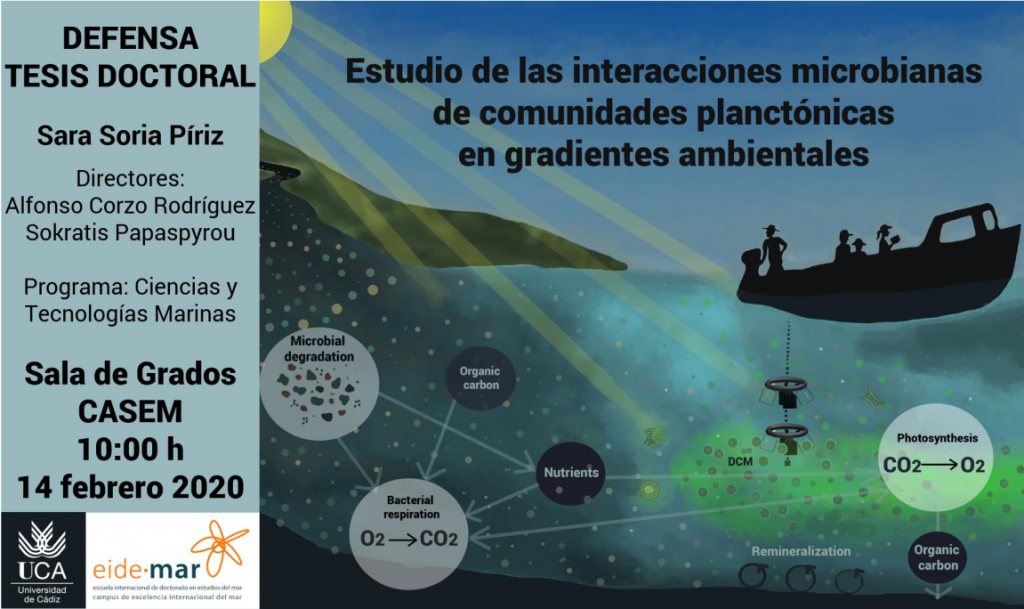
Sara used several techniques including chemical analyses, flow cytometry, labelled carbon experiments and biogeochemical modelling to measure primary production rates, size fractionated plankton distribution, and carbon and nitrogen biogeochemical cycling.
The thesis was supervised by Alfonso Corzo and Sokratis Papaspyrou and was defended in front of internationally renown scientists such as Josep (Pep) Gasol Piqué, Fidel Echevarria Navas and Xosé Anxelu Gutiérrez Morán.
Sara has already published two articles (both in Limnology & Oceanography) and more are on the way. We will keep you posted.
We wish her all the best for the future!
CEIMAR Young researcher’s project (2019 call)
One of our post doc members, who is associated to the project MICROBAHIA and MICROBAHIA 2, as well as an active researcher, Dr. Miguel Lara, has been successful in obtaining financial support by the CEIMAR foundation.
Miguel Lara’s project is titled “Oxygen dynamics in phototrophic intertidal sediments. Stoichiometry of proton fluxes and effects of porewater drainage”. The main goal of his proposal is to clarify the influence of tidal state in the short term response of oxygen and pH gradients, both due to microphytobenthic activity and diffusive fluxes. For such objective, our laboratory benefits from a fully developed equipment of microsensors and an additional budget of 4000 €.
Due to the coronavirus pandemic disease (COVID-19), CEIMAR foundation extended the end date of the project along 2021.
More info can be found here:
https://www.researchgate.net/project/CEIMAR-Program-for-young-leading-researchers-2019
